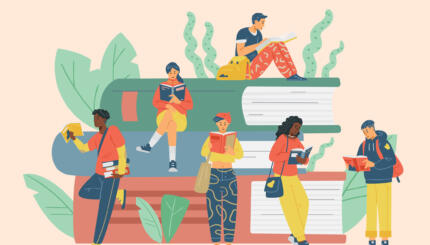I received an email from a reporter who wanted to interview #MeToo Rabbis. I replied, “We are all #MeToo Rabbis.” Well, at least I hope so. When we spoke on the phone, he asked the questions I expected, “What kind of harassment have you encountered? Who do you know who has a story to tell?” And then a question I did not expect. “How have conversations with other female rabbis and other male rabbis changed? “
I explained, first of all, we are rabbis who are women or rabbis who are men. The job is the same even if the body doing the job is different. It is a point of distinction I appreciate because usually I am called a “Female Rabbi” but my male colleagues are just called “Rabbi.” As I answered his question, I realized three ways in which the conversations are, in my opinion, changing in this new, post #MeToo world:
- Conversations with colleagues who are men have changed
I find this to be true in two ways. First, I have amazing colleagues who are men who have asked me and/or other women in their lives to sus out if they have unknowingly committed an act of harassment. I am so proud of each one who has been brave enough to ask the question of themselves and of those around them. They are raising issues of workplace harassment and of Jewish institutional harassment which is critical in making change. They have more power than I do as a woman and have been extraordinary partners and allies.
It is also easier now to call out bad behavior, inappropriate comments or other missteps with colleagues who are male who does not have or do not exhibit self-awareness of the issue. I was recently reading a Rabbinic newsletter from an independent organization aggregating sermons and sermon materials. The intention is to share these sermons with rabbis to read, learn from, be inspired by and enjoy. This particular newsletter touted all the colleagues featured on the platform. Read here, the letter said, to hear the voice of the American Rabbi. I was fuming. All the colleagues were men, older, white, congregational. Before, I would have sat at my desk angry, sad, frustrated. Instead, I wrote a letter. It was kind and gentle yet clear that the American Rabbi is also female, of color, gay, trans, young, poor, otherly–abled, independent and so on.
2. Conversations with colleagues who are women have changed
I met with someone in my home one afternoon. My daughter was home playing with a friend, and this person, male, was seeking a pastoral visit and this is what was available to me. I didn’t think much of it until it happened. It turned creepy and inappropriate. I got him out of my house as fast as I could. I was shaken and upset. I called one of my Rabbi friends, female, and told her about it. We unpacked the events, explored all the feelings, she shared stories with a similar feel and then, the conversation took a new turn. She asked me What will you do about it? Once upon a time, not very long ago, the conversation would have ended with the commiserating. Yeah, Me Too, she would have said. The End. But now, now there is much more room in the conversation to consider speaking up, speaking out, responding, and so on. I have not been in touch with this person since it happened and have felt free to do so in a way I would not have a few years ago. I didn’t have to go along with it, smile, and play nice. And the conversation with my colleague bore that out. She did not need to caution me to be careful, to not rock the boat. She got to say, rock that boat all you want. Make waves, splash around, if you want to.
Another story about how women’s conversations are changing: I published a piece a few months back offering some practical steps around workplace harassment. After it was published, I started receiving emails and calls from women all over the place-some I knew, some I didn’t and some I have admired from afar throughout my career. I noticed how women bravely posting stories of harassment or triumph on Facebook were getting ‘atta boys’ from women everywhere. There is a feeling amongst women, especially in the same field, of sisterhood, of support, of cheerleading and championing. It feels less lonely, less isolated. As if we all now know we really are in it together; that there is a way out and it is hand in hand, singing, dancing, marching, laughing, crying together.
3. Conversations around women have changed
We no longer need to pretend women are not being harassed. One of the hallmarks of abuse is keeping it a secret. The secret is out. We no longer have to quietly, stoically, bravely, miserably or otherwise bear the burden of life with the assumption of abuse, mistreatment, and discomfort. So much can now follow from this freedom. As we are released and release ourselves as well as one another from the shackles of this burden, there is emerging a new found energy and opportunity for other pursuits like smashing glass ceilings, opening doors, raising families, starting new projects, making the world a little better one moment in solidarity with more and more people at a time.



